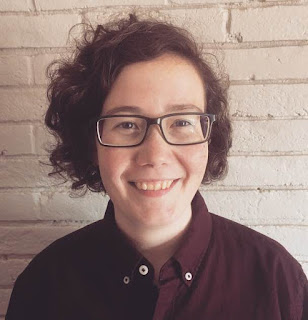Quick Takes: Foreshadowing and Mirroring in Guardians of the Galaxy: Vol. 2
by Catrin Watts
As I watched the beginning of Guardians of the Galaxy: Vol. 2, I was struck with a sense of déjà vu: the first three songs of Vol. 2 are used in exactly the same way as Vol. 1! Looking back at Vol. 1, the first three songs establish the connection between Peter Quill and his cassette Walkman, as well as the tight-knit and musical logic of the audiovisual editing style that persists throughout the film. So why would Vol. 2 mirror this introduction? And how does this mirroring anticipate the way popular music will be used in Vol. 2? I will compare the use of the first three songs in both introductions side-by-side to highlight their structural similarities and their meaningful differences.
Vol. 1 begins with a black screen and a sound advance of “I’m not in love” (1975) by 10cc. The title “EARTH 1988” appears in yellow on the black screen and then there is a cut to the cassette Walkman in Peter Quill’s (Wyatt Oleff) 8-year-old hands. He is in a hospital corridor waiting to go in and see his mother who is nearing the end of her life after a battle with a brain tumor. The writing on the cassette says “Awesome Mix Vol. 1” and the mix tape is tied to Quill as his possession. Now, Vol. 2 begins with a black screen and a sound advance of “Brandy (You’re a fine girl)” (1972) by Looking Glass. The shot cuts to Missouri in 1980, and this information is displayed as an overlay with each piece of information arrive in time with the music. The following scene shows Quill’s mother (Laura Haddock) and father (Kurt Russell) driving around listening to the song. In Vol. 1, it is revealed that Quill’s mother is the source of his mix tapes and so this opening sequence is returning origin and ownership to Quill’s mother. While Vol. 1, is the Guardians origin story, Vol. 2 is more focused on how Quill came into existence.
The next track in Vol. 1 is “Come and Get Your Love” (1973) by Redbone. Quill (Chris Pratt) is exploring the ruins on Morag in search of the Orb and once he reaches the interior of the ruins, he hits play on his Walkman and dances through the space. This cues the Guardians of the Galaxy title card and the credits. Cut to Vol. 2, and the second song used is “Mr Blue Sky” (1977) by Electric Light Orchestra. The Guardians are hired by The Sovereign to protect some batteries from an interdimensional space monster and Rocket is messing around trying to get the stereo system set up. Once the monster arrives and Quill, Drax (Dave Bautista), Gamora (Zoe Saldana), and Rocket (Bradley Cooper) rush off to fight it, Baby Groot (Vin Diesel) plugs in the cable and dances around the scene of destruction. While we are aware that fighting is occurring in the background, the camera is positioned in front of Baby Groot for the entire song and the title credits appear. Again, Vol. 2 is moving away from Quill’s ownership of the mix tape and the music it contains. Rocket is the main instigator of playing music during the fight and Baby Groot is the focus on the dance routine, rather than Quill.
The third song in Vol. 1, “Go all the way” (1972) by the Raspberries, is heard emitting from the stereo in Quill’s ship after he escapes Morag. This song functions mostly as background music but it continues tying the popular music soundtrack to the mixtape and Quill. In Vol. 2, the third song, “Lake Shore Drive” (1971) by Aliotta Jaynes Jeremiah, is also heard playing from the stereo in Quill’s ship as they leave The Sovereign. In Vol. 1, there is a shot of the mixtape in the stereo with the label “Awesome Mix Vol. 1” and in the sequel, there is the exact same shot but the mixtape reads “Awesome Mix Vol. 2.”
This repeat of the Vol. 1 introduction formula in Vol. 2 appears to be stating that popular music no longer belongs to Quill exclusively. The first film has established the creation of the Guardians and now the sequel is working to show how the team has grown together, which includes a broader ownership of popular music. While Quill meeting his father (Ego), and discovering that he is half god – which cues the return of “Brandy” from the introduction – leads to the climactic battle of Vol. 2, the strongest character development occurs in scenes with Rocket and Yandu (Michael Rooker). In their scenes, popular music is integral to their plans of deception and escape in a way that it is not with Quill in Vol. 2 – aside from when he uses his powers to defeat his father. For example, when Rocket and Yondu are taking out the Ravagers to escape the ship, Rocket asks Yondu is her has any of Quill’s old music lying around and they use it as an epic background to their escape. By mirroring the introduction of Vol. 1 in Vol. 2, the film anticipates from the beginning that Quill himself is no longer the primary focus and that popular music will belong to all of the Guardians.
Catrin Watts is a doctoral candidate in music theory at The University of Texas at Austin and a graduate of Queen’s University, Belfast, where they wrote a master’s thesis on the film collaborations between Joe Wright and Dario Marianelli. Catrin has presented papers on music and film at several conferences and their dissertation explores the relationship between musical characteristics of popular music and the kinetic action of contemporary action film.


